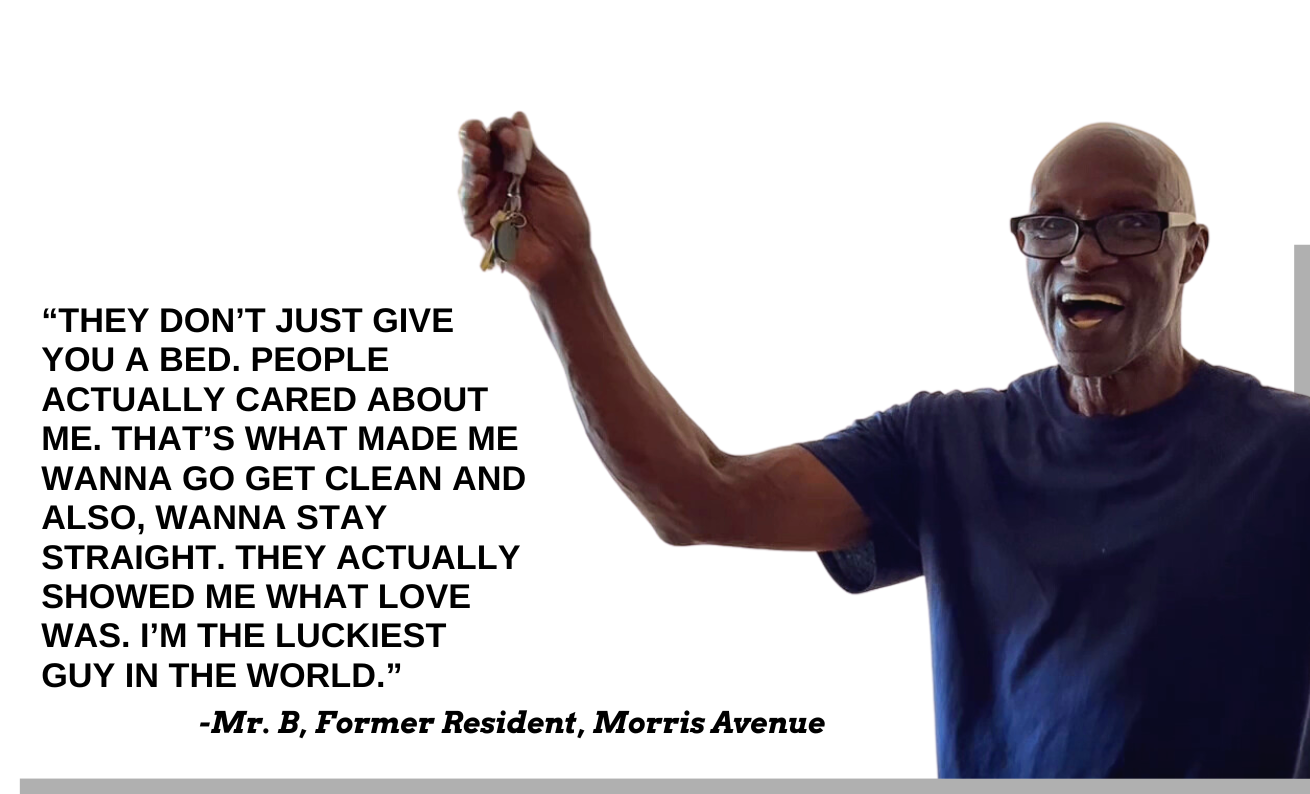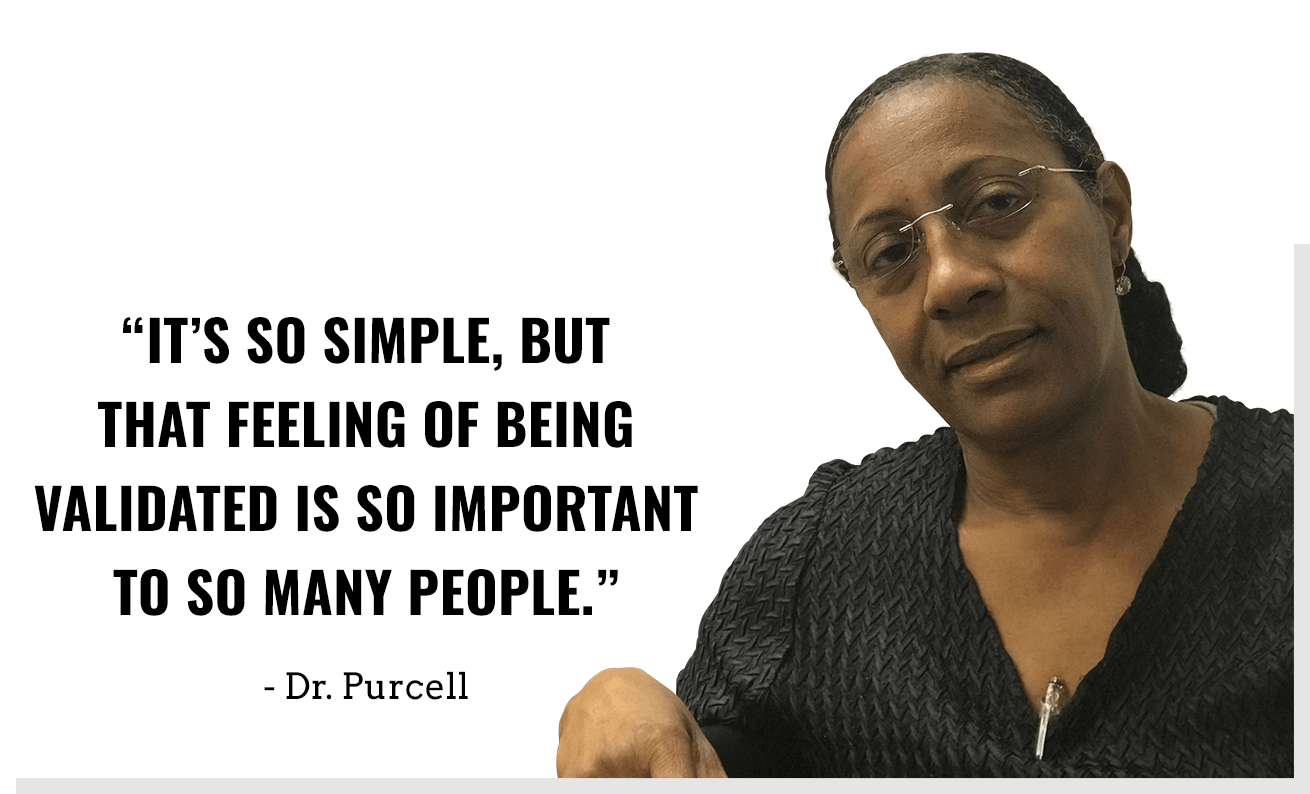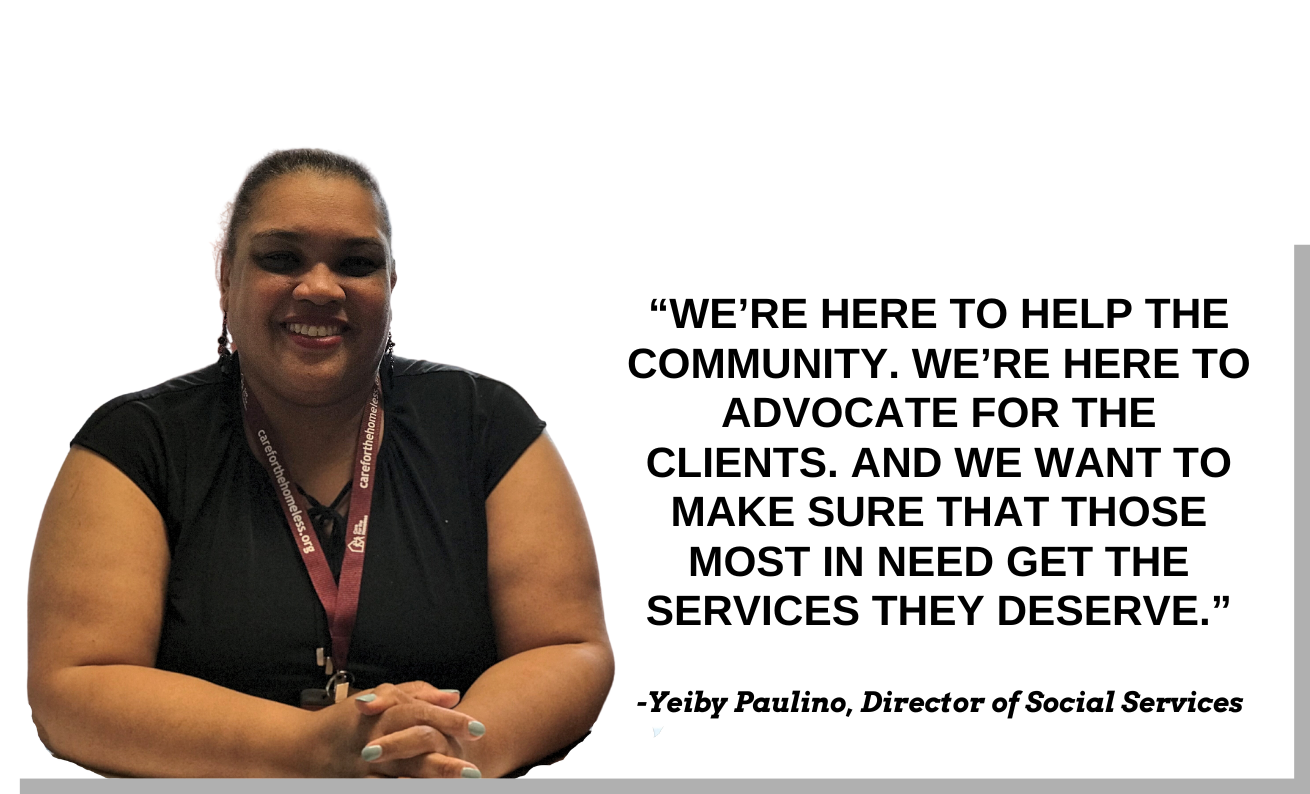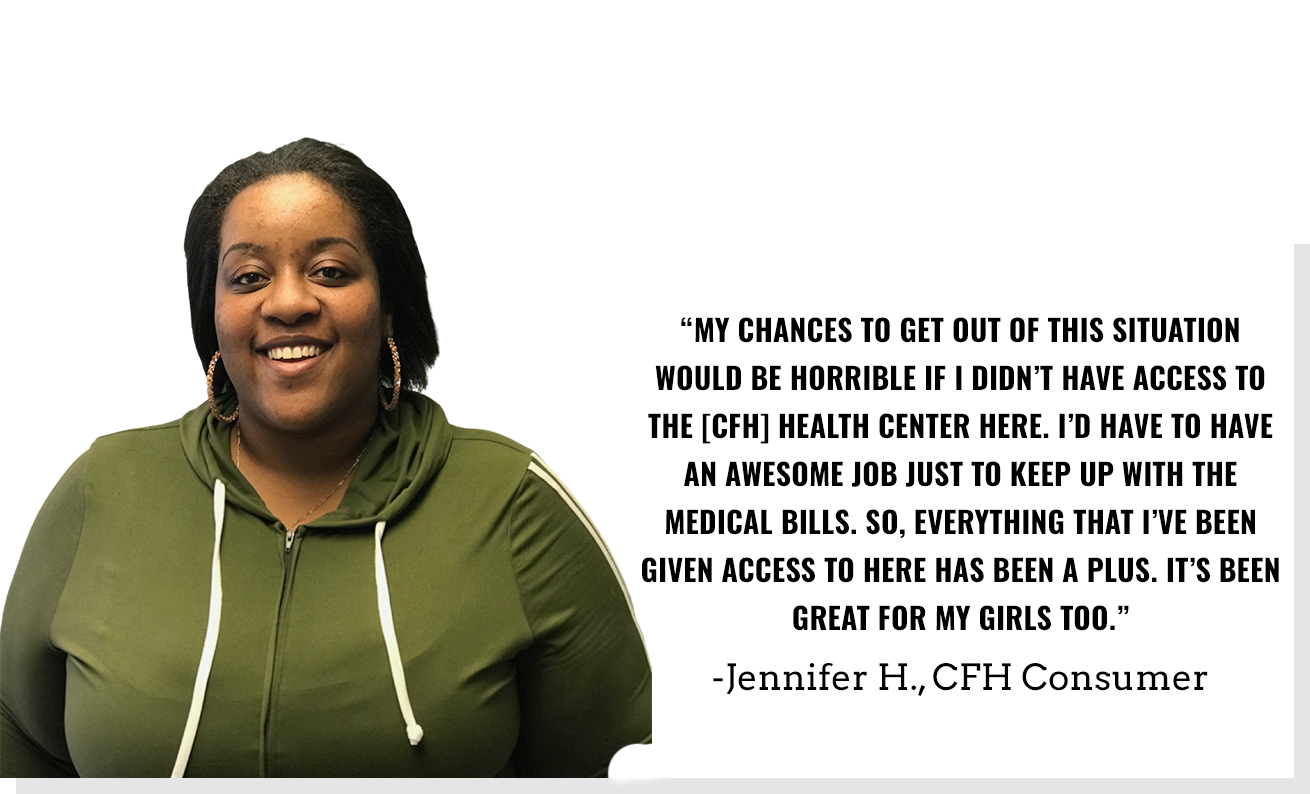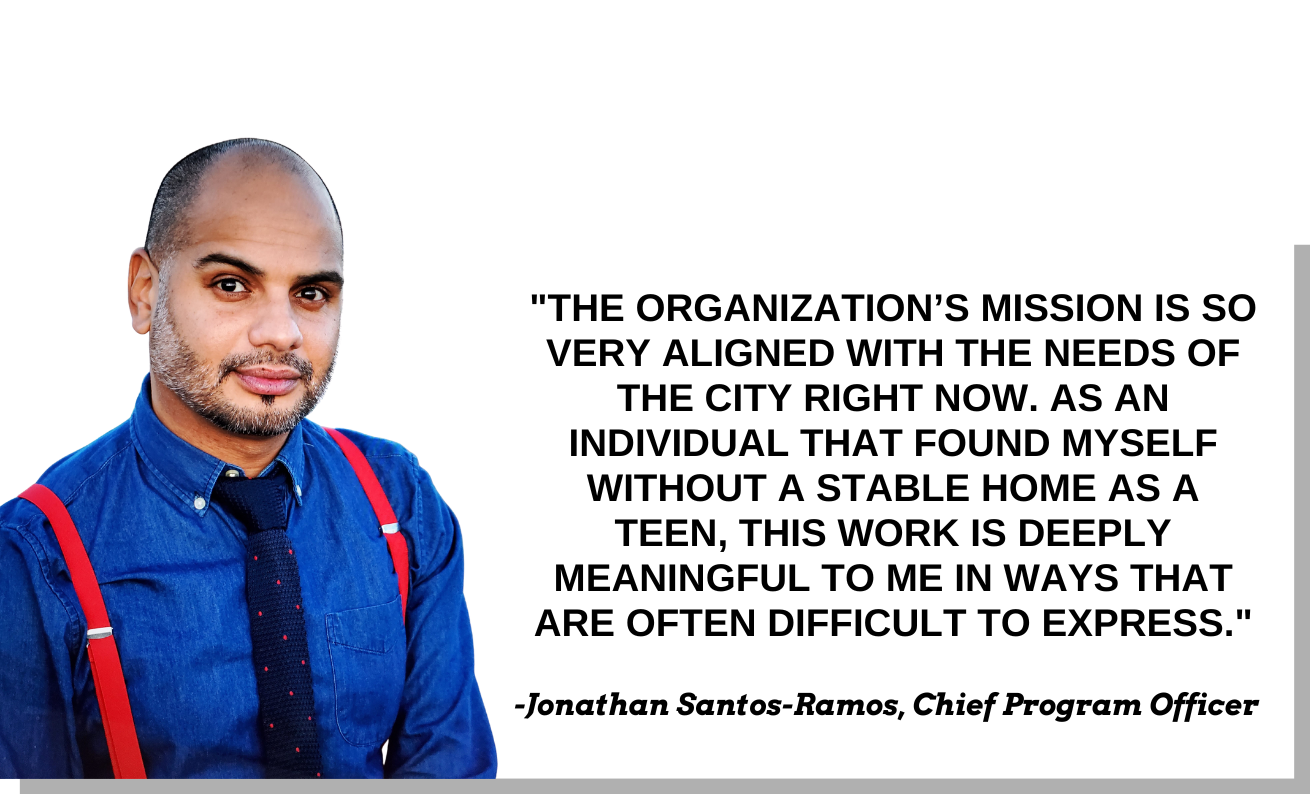Meet Nora Lueth, Nurse Practitioner
Nora Lueth works with patients from a variety of sites, giving her a well-rounded perspective on homelessness. Learn how this perspective helps her and her colleagues in their work and in their adjustments to COVID-19.
Care For the Homeless (CFH) operates 26 health care delivery sites across the Bronx, Brooklyn, Manhattan and Queens. All of them provide a variety of services and all of them have had to make serious adaptations in response to COVID-19. These range from expanding telehealth to staggering in-person appointments. However, while these times have been uncertain, one constant we’ve been able to count on is the dedication of our amazing health care and shelter staff.
One of many shining examples of this is Nurse Practitioner, Nora Lueth.
Nora Lueth, Nurse Practitioner
Nora began working at CFH in July of 2019. Originally, she spent most of her time at our health center for families in Jamaica, Queens. But since COVID-19 began, she has split all of her time between three of our health centers in Brooklyn and two in Queens. That’s nearly a quarter of all our sites!
Each of these sites serves a variety of individuals, from single adults to families. And Nora has gleaned a lot of experiences from each of them, allowing her to achieve a well-rounded perspective of homelessness. This perspective has been instrumental in her work as a Nurse Practitioner. However, it has also been essential for and her and her colleagues as they adjusted to the many challenges presented by COVID-19.
The Challenges of COVID-19
Health care cannot take time off, even in normal times. So, as soon as the pandemic hit, we began taking appropriate measures to keep patients safe while still delivering care.
“Most of the time, we just do phone calls,” said Nora. “It may not sound like much, but if, for example, someone has a home blood pressure cuff and have been taking their readings every day for 3-weeks, I’m always there for the follow-up. They can give me those readings and I can get their meds refilled.”
“And obviously, if there’s anything important, I’d want them to come in,” she continued. “But I feel like it’s opened up a lot of barriers that were previously existing in health care.”
Breaking Down Barriers
Nora works with a variety of people at each of her sites, ranging from single adults to children and their parent(s). Barriers to high quality care affect them all in unique ways. For example, a single mother likely experiences difficulties finding time for her own medical appointments. However essential they may be.
Nora has witnessed this first-hand.
“A lot of the time, physically getting to the place to have the appointment is really challenging,” she explained. “I know a mom who is 25 with four kids all under the age of 10. So, for her, going anywhere is a challenge. So, if I wanted to send her somewhere for a follow-up appointment, getting there is really difficult.”
“Now that we can do these phone visits, I feel like it’s much more convenient for the patients,” Nora continued. “I feel like I am able to reach them in an easier capacity and, hopefully, make their days a little bit easier.”
The Co-Location Model
Another method CFH employs to reduce barriers to care is co-locating our health centers. All but one of our health centers are located within buildings run by other organizations.1 These include adult and family shelters. So, no matter an individual’s situation, a medical visit is never further than a walk down the hall.

“In person visits have still been really helpful too, especially at St. John’s2,” commented Nora. “It’s an open access site that has a food bank and a health center. Right now, the whole building is closed down, so the food pantry line is outside. That means we have to go outside and get people, but 50% don’t have phones. So, they really rely on the convenience of co-location. They can come get their groceries and get their diabetes checked.”

“That in-person quality is still important for those who can’t connect any other way.”
And while these adjustments haven’t been easy, Nora has experienced some significant benefits.
Silver Linings
“At first, [maintaining in-person] was challenging because nobody wanted to come in,” Nora explained. “But people have been very receptive to telehealth. They’re much happier to do follow-up visits over the phone. So, it depends on the health center, but I feel [patient volume] has been steady and maybe even increased.”
Breaking Down Stigmas
“No one wants to be in a shelter,” explained Nora. “Everyone wants to go to their old apartment, get a new one and figure their situation out. They all want to get back to normal life. This is just a terrible thing that happened to them. It’s an experience you can’t control a lot of the time.”
“Most of my patients have jobs and lost their apartments because their landlord didn’t pay taxes,” she finished.
This twofold approach is what makes CFH provider so unique and effective in their positions. And Nora wouldn’t have it any other way.
Why CFH?
Nora Lueth has wanted to work in a federally qualified health center3 ever since she began pursuing a career in medicine at the University of Pennsylvania.

“Working at a federally qualified health center is actually my dream,” she said. “At CFH, I feel like I have a little bit more freedom to do as much as I can for my patients. I think this is where health care can do the most good.”
The Work
“I love my patients,” she commented. “They’re all great and I’m very thankful. I’m happy to help where I can and be there for people going through a rough time.”
Nora’s experiences illustrate a lot of CFH’s core tenets.
Homelessness is a condition, not a characteristic. Conditions can be treated.
Health is just one aspect of an individual, we must treat the whole person.
Her effort and dedication is illustrative of our entire health services staff and we couldn’t be more thankful to have her as part of our team.
If you’d like to hear more from Nora Lueth, she recently participated as a panelist during our most recent policy webinar, focusing on COVID-19’s effects on delivering health care to homeless populations. Click below to watch!
In addition, if you would like to support Nora and her work at CFH, please consider including us in your year-end charitable giving this year. Explore the button below to learn more.

